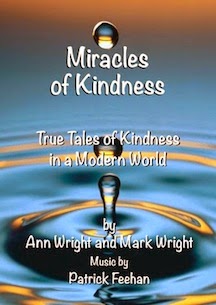Tomorrow marks the end of Musa Publishing. Although I’d had
some short fiction in anthologies and on websites, Musa was the first publisher
to put my work out as books. Initially I was hesitant because ebooks were a new
venture for me, but what won me over was their warmth, organisation and openness. It wasn’t
just a business it was a also a thriving community of authors, sharing tips,
support and experience.
The Silent Hills is a 5000 word suspense story and I was
surprised when they took it on as a standalone work. In hindsight it may have
been due to their generosity of spirit and desire to build a list than for any
commercial potential because, although well-received and reviewed, The Silent Hills failed to really establish an
audience.
However, what TSH did do was get me involved in the Musa
community. I met authors of genres I’ve never been near – LGBT, Regency Romance
and Erotica, to name but three – and found that our similarities as writers are
much greater than our differences. Whatever the genre, the requirements of good
writing are the same – always have been and always will.
TSH also gave me the confidence to try something different.
Next time I wrote Superhero Club, a children’s book for a mid-grade audience.
If anything this book was even more of a challenge because it dealt with
bullying, food issues and the value of friendship. It was, once again, a story
that wrote itself. An added complication for the book was that it was firmly
set in the UK, but Musa’s house style was US English.
SC came out about a year after TSH and barely made sales
into double figures. It could be that the subject matter was too close to home
for the target readership. I did contact a variety of youth organisations, but
either the timing was wrong or the staff had any pressures and priorities. I
mention all this because I recognised (and still do!) that any publisher can
only do so much. Every author must play their part in actively marketing their
books and the more creative the approach the better.
I didn’t submit another book to Musa. I was thinking about a
sequel to SC, but that would have been in the autumn. I didn’t part with any
full-length novels because I thought the house style would make edits a
nightmare. Editing was always a collaborative experience, so I had some idea of
what I might be taking on!
All of which is a way of saying I had less to lose with Musa
with my books, but I was fully committed to their cause. It was a virtual place
of passion and enterprise with an online infrastructure that’s unmatched by
anywhere else I’ve seen. Musa have been responsible for dozens of books and
dozens of first-time authors. It’s to the credit of the team that they are
ending Musa precisely because they have been unable to run it along commercial
lines. In the meantime royalties have always been paid and everyone that I’ve
spoken with in the Musa family has felt a genuine sense of loss and admiration
for the dream that has now come to an end.
Time is running out if you want to grab yourself an ebook
bargain. Naturally I’d be delighted if you picked Superhero Club, but I also encourage you to check out the wider Musa site to see if
anything takes your fancy.
Thank you, Musa, for everything, and good luck to my fellow
Musan authors out there.
“Nothing
good is a miracle, nothing lovely is a dream.”
― Richard Bach,
Illusions: The Adventures
of a Reluctant Messiah






